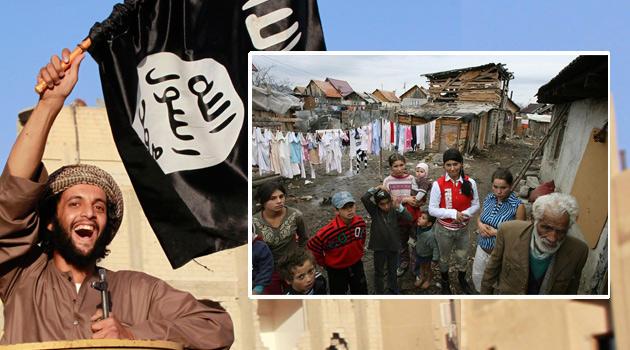Self-proclaimed Islamic State trying to recruit Roma in the Balkans

The radical self-styled Islamic State (IS) movement is doing its best to exploit the unstable economic and social situation of Romani people in the Balkans to recruit them to join their military services. Romani activists are warning local Roma of the danger connected with such extremism and are trying to stop the progress of IS and other radical groups in the Romani community.
"Islamic fundamentalists, as well as their so-called ‘humanitarian organizations’, recruit our Roma and force them to commit to radical Islam, to start dressing and behaving in accordance with the rules of radical Islam," Darko Trifunović, a Serbian representative with the International Strategic Studies Association, told news server setimes.com. Trifunović went on to say that 10 years ago there were no radicalized Romani people in the region.
During the past few years, Romani people there have been pressured by radicals who are striving to replace their self-identification as a national minority with a religious identification. "Roma settlements are targets for terrorists — they consider us uninformed, uneducated and not in good economic and social positions," says Jovan Damjanović, president of the World Roma Organization
"They see us as an easy target for indoctrination and recruitment," Damjanović told setimes.com. "Unfortunately, this is a huge challenge for Roma people, as the majority of them do not know who radical Islamists are, or the risk they bring."
Damjanović also claims that extremist pressure is being created by new obstacles to the inclusion of Romani people into Balkan society, because the "majority" is now associating them with the danger of Islamic fundamentalism. "Radical Islamists and other extremists are not welcome in our community, as they are trying to abuse the Roma nation and to create disturbances in countries where Roma live, with a goal of promoting radical Islam and recruiting for ISIL. We resist extremism and say no to terrorism, and keep working to inform and educate our members on the risk and threat that radicalisation and ISIL [impose]," he told setimes.com.